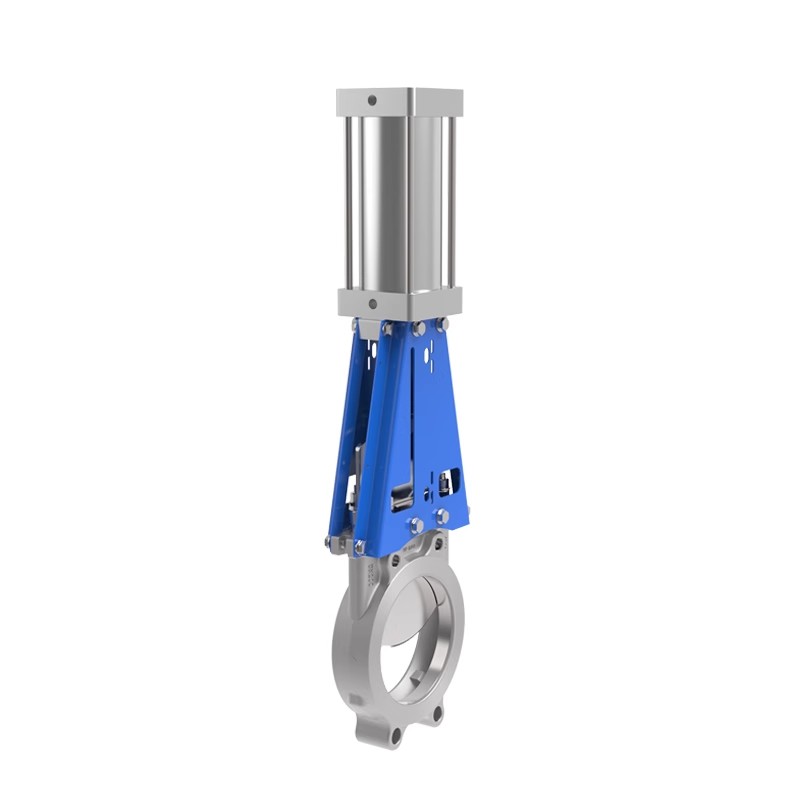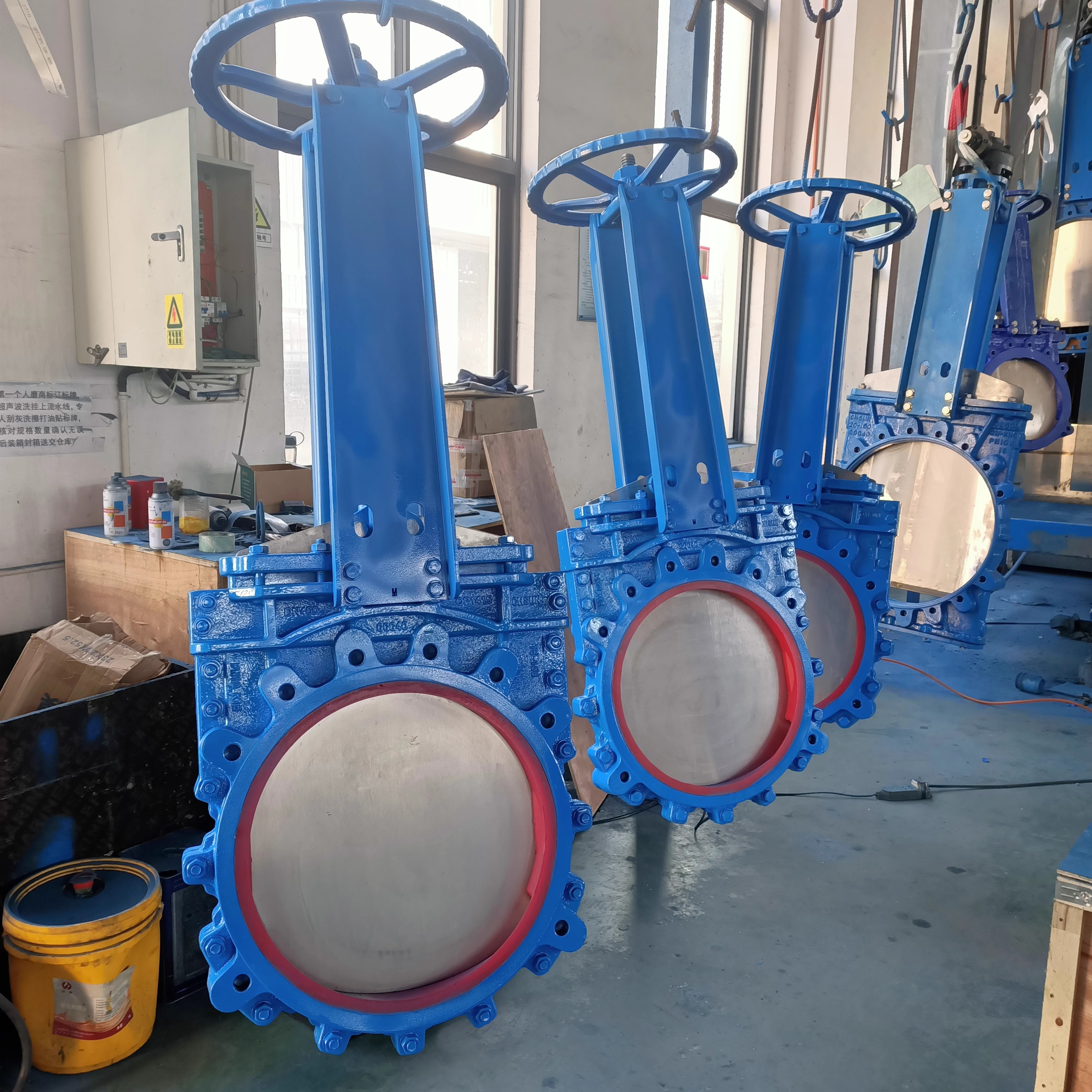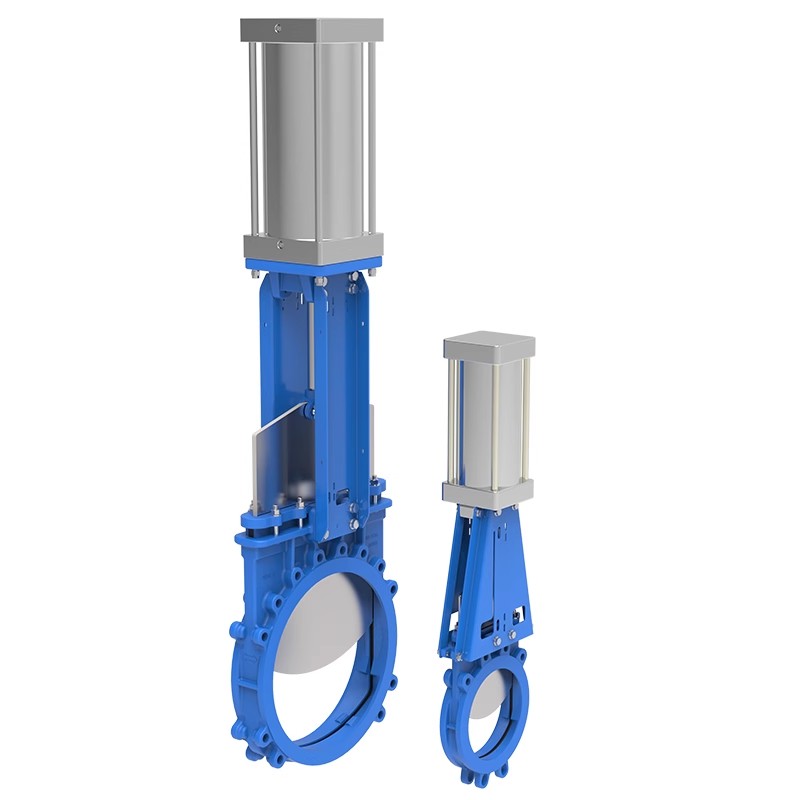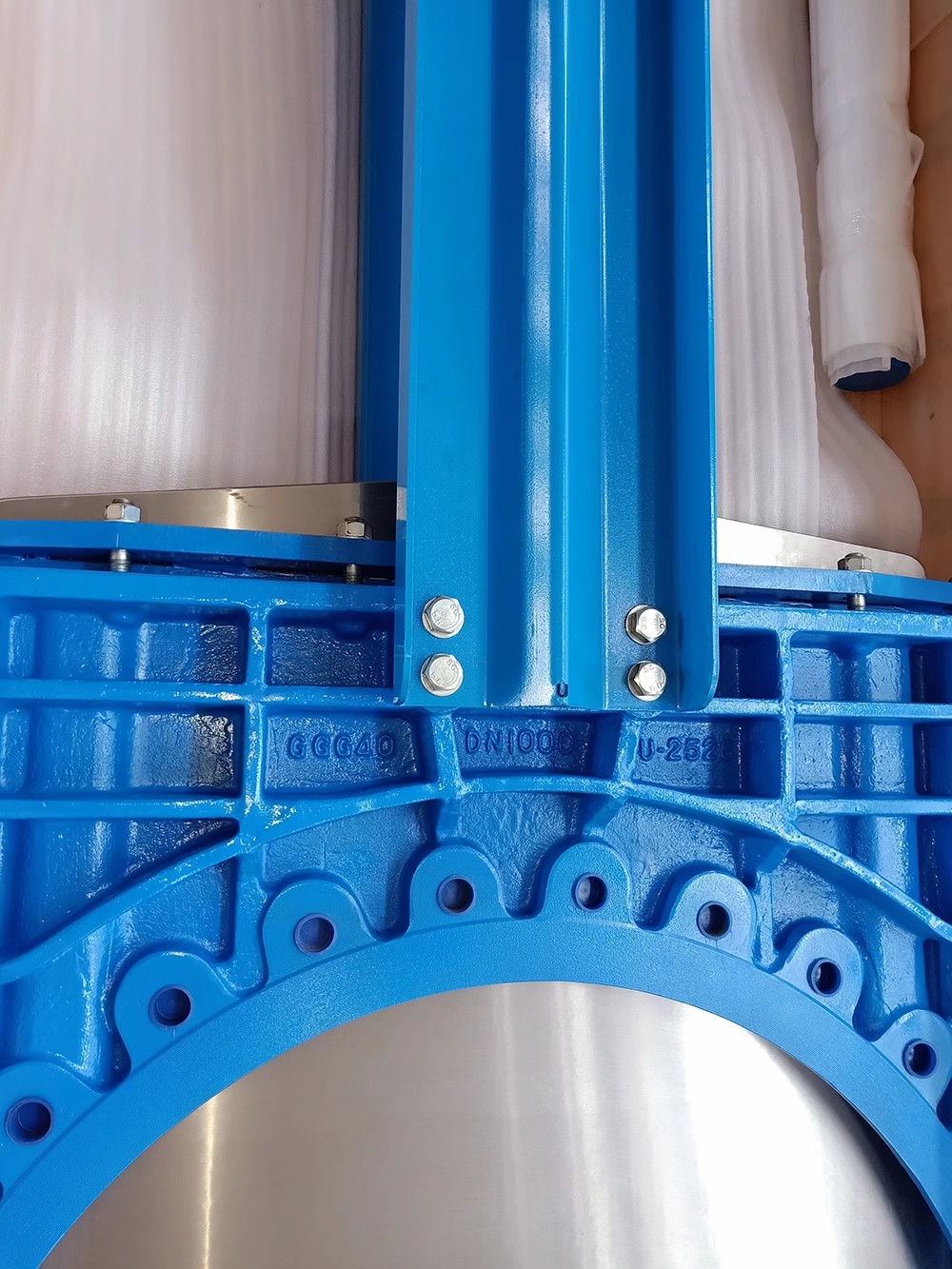Comprehensive Guide to Knife Gate Valves by Leading Brands
- SZSPSK
- 2024-11-29 18:38
Key Takeaways
Knife gate valves have become essential components within various industrial applications, chiefly owing to their robust design and adaptability. The key features that characterize these valves include a slotted gate mechanism, enabling reliable shut-off capabilities, as well as the ability to handle slurry-type fluids. Hilton, known for its high-quality iron knife gate valves, emphasizes durability, ensuring prolonged service life even under severe conditions. The Isogate brand focuses on delivering solutions that excel in both performance and efficiency, particularly with their innovative technologies designed to minimize leakage and improve system integrity.
Jash knife gate valves are reputed for their versatility, catering to a wide range of applications, from wastewater treatment to mining. Their commitment to manufacturing allows them to meet diverse industry standards while emphasizing user-friendliness in operation. The Keystone knife gate valve catalogue presents an array of options tailored for specific needs, underscoring the importance of selecting a valve that aligns with project requirements.
Understanding the comparative advantages of these brands aids professionals in making informed decisions tailored to their operational needs. Considerations such as material composition, design specifications, and operational efficiency play vital roles in determining the best fit for unique installation environments. Overall, evaluating these attributes enhances the selection process while ensuring optimal performance across various sectors.
Overview of Knife Gate Valves: Key Features and Specifications
Knife gate valves are essential components in fluid handling systems, designed to provide tight shut-off for the flow of liquids and slurries. These valves are characterized by their simple design, which includes a blade or knife that slices through the material, ensuring a secure seal when in the closed position. Among the various types available, iron knife gate valves, Hilton knife gate valves, Isogate knife gate valves, Jash knife gate valves, and Keystone knife gate valves stand out due to their robust construction and reliability.
The construction materials play a vital role in determining the performance and durability of these valves. Typically, these products are available in cast iron or stainless steel options which cater to different operational environments. The design specifications often include features such as low operating torque, which facilitates easier manual or automated control. Additionally, their compact profile allows for space-saving installations within pipelines.
For industries handling abrasive materials, the blade geometry is crucial. The angle and width of the blade influence not only cutting efficiency but also enhance longevity by reducing wear over time. The seat design either soft or hard can be selected based on user requirements; soft seats are better suited for applications requiring complete sealing while hard seats are preferable for high-pressure environments.
In terms of operational parameters, various models exhibit significant variations in pressure ratings and temperature tolerances. Users must refer to catalogues from brands like Hilton or Keystone to ensure compatibility with specific application needs. This comprehensive approach ensures that selecting the right valve enhances operational reliability while minimizing maintenance needs across diverse industries from wastewater treatment to mining operations.

Comparative Analysis of Leading Brands: Hilton, Isogate, Jash, and Keystone
Knife gate valves serve pivotal functions in various industrial applications, facilitating the flow control of fluids while minimizing leakage. Each brand—Hilton, Isogate, Jash, and Keystone—offers unique features tailored to specific operational demands.
Hilton knife gate valves are known for their robust construction, emphasizing durability in harsh environments. Typically made from high-strength materials, they effectively handle heavy slurries and abrasive media. Their design focuses on low maintenance requirements and enhanced reliability.
The Isogate knife gate valve stands out due to its innovative features that promote efficient flow regulation. These valves possess a streamlined design that minimizes pressure drops while ensuring ease of operation under varying conditions. Isogate valves also often incorporate advanced sealing technologies to further prevent leakage.
In contrast, Jash knife gate valves are recognized for their adaptability across diverse applications. Their modular design allows for easy customization based on customer specifications. Jash valves are engineered for both manual and automated operations, making them versatile solutions in industries like wastewater treatment and mining.
Keystone knife gate valves, known for their extensive range of sizes and configurations, provide flexibility in design choices while maintaining high performance standards. The durability of Keystone products makes them well-suited for demanding environments such as the chemical processing sector.
Comparative performance factors such as pressure ratings, materials used, and sealing mechanisms among these brands can be summarized as follows:
Brand | Pressure Rating | Material Options | Sealing Mechanism |
|---|---|---|---|
Hilton | High | Steel, Stainless | Soft-Seated |
Isogate | Medium | Plastic, Metal | Metal-Seated |
Jash | Variable | Carbon Steel | Soft-Seated or Metal |
Keystone | High | Cast Iron | Dual Sealing |
Selecting the most suitable knife gate valve requires consideration of application-specific needs along with these comparative factors. Understanding these distinctions aids professionals in making informed decisions regarding fluid control systems across industries.
Application and Benefits of Knife Gate Valves in Different Industries
Knife gate valves serve as essential components in a variety of sectors, known for their efficient design facilitating reliable flow control. The Hilton knife gate valve, renowned for its robust construction, is widely utilized in heavy-duty applications such as mining and wastewater treatment. The durability of these valves ensures they can handle harsh environments, minimizing operational interruptions. Similarly, the iron knife gate valve offers a sturdy solution well-suited for applications where resilience against wear is crucial. Their ability to maintain tight seals while allowing substantial flow rates makes them highly favorable in pulp and paper industries.
In chemical processing, Isogate knife gate valves excel due to their advanced sealing technology and corrosion resistance. These features enable them to manage aggressive fluids effectively, ensuring safety and operational efficiency. Additionally, the Jash knife gate valves provide a range of designs that cater to specific operational requirements across industries like food processing and power generation. Their adaptable configurations allow seamless integration into existing systems.
The Keystone knife gate valve catalogue reveals innovative options that focus on enhancing performance while reducing maintenance needs. This focus on efficiency leads to minimized downtime, which translates into cost savings over time. Using such valves can result in improved product quality by ensuring consistent flow rates and reliable shut-off capabilities across various applications, including energy production and municipal services.
Overall, the implementation of knife gate valves contributes significantly to operational reliability and performance efficiency across multiple industrial frameworks.

Selecting the Right Knife Gate Valve: Considerations for Your Needs
Choosing the appropriate knife gate valve requires careful assessment of various factors that influence performance and compatibility with specific applications. Start by evaluating the material used in the valve construction. Options such as iron, resilient elastomers, and stainless steel are common, each offering different advantages in terms of strength, corrosion resistance, and cost-effectiveness. Next, consider the pressure ratings and temperature ranges that the valve will need to withstand; these specifications ensure operational reliability under intended conditions.
The design should also be aligned with the media being handled. For abrasive materials or slurries, a robust design is crucial to prevent wear over time. Familiarity with specific brands can aid in this decision-making process. For instance, Hilton knife gate valves are known for their durability, while Isogate knife gate valves provide excellent sealing capabilities in varied applications.
Valves also vary in their operation types—manual versus automated options exist to accommodate different control requirements. Evaluate accessibility for maintenance tasks; designs that facilitate easy disassembly can significantly enhance long-term serviceability.
"Assessing both operational requirements and application-specific demands leads to an informed choice of knife gate valve."
Additional considerations include connection types and sizing compatibility with existing pipeline systems. Thoroughly analyze these elements alongside project-specific needs to assure optimal performance and reliability throughout the lifespan of the selected equipment.

Conclusion
Knife gate valves represent a critical component in fluid control systems across various industries. Their design, highlighted by features such as straight-line flow and minimal obstruction, makes them suitable for applications involving slurries, wastewater, and other challenging materials. The Hilton knife gate valve, known for its durability and ease of maintenance, often finds favor in heavy industrial contexts. Conversely, the Isogate knife gate valve is recognized for its innovative design that enhances sealing efficiency, minimizing leakage potential. The Jash knife gate valves offer robust performance and competitive pricing, making them appealing choices for budget-conscious projects. In addition, the Keystone knife gate valve catalogue showcases a diverse range of options tailored to specific operational needs. Understanding these attributes empowers engineers and procurement specialists to select valves optimized for their particular application requirements, ensuring reliable performance within their systems. Each brand contributes uniquely to the market, providing choices that cater to varying operational demands and performance expectations. Selecting the appropriate valve involves careful consideration of factors such as material compatibility, size specifications, and operational pressures to achieve optimal results in fluid handling processes.

FAQs
What is a knife gate valve?
A knife gate valve is a type of valve used for on-off control of flow in bulk handling applications, designed specifically to handle slurries, powders, and other thick materials.
What are the key features of Hilton knife gate valves?
Hilton knife gate valves are recognized for their robust construction, reliable sealing capabilities, and ease of maintenance. They often include features like a stainless steel blade to ensure long-lasting performance in various environments.
How does an iron knife gate valve differ from other materials?
Iron knife gate valves typically offer superior strength and durability compared to lighter materials. They are well-suited for high-pressure applications but may be more susceptible to corrosion if not properly maintained.
What advantages do Isogate knife gate valves offer?
Isogate knife gate valves provide excellent isolation in industries dealing with abrasive materials. Their design allows for minimal downtime during maintenance since they can be serviced without requiring complete removal from the pipeline.
Where can I find Jash knife gate valve specifications?
Specifications for Jash knife gate valves can typically be found on the manufacturer's website or within their product catalogs. These documents provide detailed information on dimensions, pressure ratings, and applicable standards.
Why choose a Keystone knife gate valve over others?
Keystone knife gate valves are known for their engineered design that balances performance with cost-effectiveness. Their versatility across multiple industries makes them a popular choice among engineers.
What are common applications for these types of valves?
Knife gate valves are often used in wastewater treatment plants, mining operations, and food processing facilities where the handling of thick fluids or solids is essential.
How do I select the right type of knife gate valve?
Selecting the right knife gate valve involves assessing factors such as pressure requirements, temperature limits, material compatibility, and specific application needs to ensure optimal performance.





